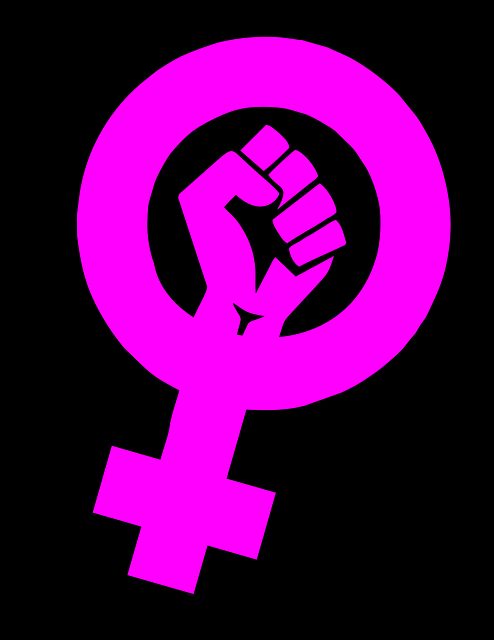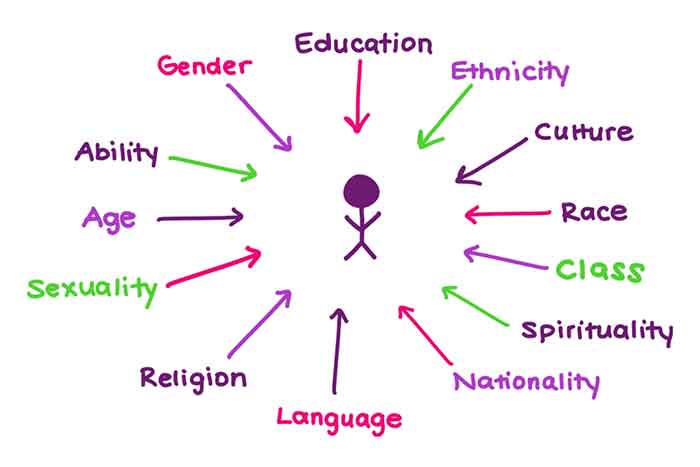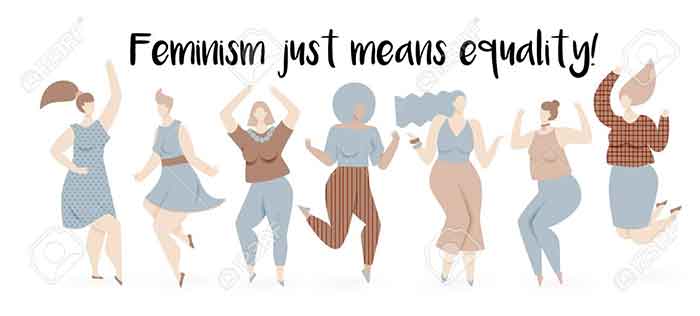
Since the past few months, I have been compelled to rethink feminism and why it matters today. The sets of events in the recent past make me encounter these thoughts. When I share with my friends about feminist ideas or opinions or arguments that are symmetrical to feminist thought, they fulminate me. Sometimes, we had a heated argument, which never ended in agreement. Never have I joined any feminist activism nor declared myself a feminist. But they think I am a feminist. So, waves of questions come into my mind: What makes an individual feminist? How do we say a statement or an opinion is based on feminist thought? Which thought is feminist and which is not? What is feminism?
For them, women whose hair is cut short and wearing dresses that do not follow traditional norms, whose mindset is not tolerant of traditional beliefs, are feminists. In their eyes, I am also a feminist because I do not accept the way they understand women and also because I used to speak against the way they look at women.
They understand ‘women’ as “papa ka pari.” Apart from its literal meaning, it can be interpreted in many ways. It sounds funny; indeed, it is to them. I am neither a linguist nor a philologist, but I can say it sounds sexist. The tone, the way they present it and the message it conveys are all filled with sexism. It presents women as innocent, ignorant, ‘dumb’ creatures. There are many similar words or phrases that are being used in day-to-day conversation, but they are hardly questioned or knowingly or unknowingly ignored. It perpetuates patriarchy.
Once one of my friends started criticising feminism, others joined immediately. They have “all the negatives” about feminism in their minds. One thing common to all their arguments is their objective, which is to expose women’s physical as well as mental weaknesses and to prove women as ‘incomparable’ to men in all realms. According to them, women cannot draw any arguments with reason. Social media is filled with short videos displaying women as such. People categorised these videos, without scruples, as ‘funny videos’ made for comedy purposes. However, contrary to that claim or even though their actual intent was for comedy, it contributed to further denigration of women. It is a kind of sanction to push women within the patriarchal grips.
My friends were apparently doing homework to counter my firm stand for or in support of women’s cause. First, they often mentioned Jordan Peterson’s arguments against feminism. They follow Jordan Peterson because they admire either his intellectuality or Peterson’s staunch opposition to feminism. Of surprise, I asked them whether they read any feminist texts or listened to any lecture delivered by feminists. The answer was, as expected, no. Interestingly, persons who are hesitant or have no interest in reading feminist texts or listening to feminist lectures are fond of Peterson. Second, they often cited some classical philosophers they regarded as the ‘greatest minds’ and argued that even these philosophers had already discarded my views.
Who are these greatest minds? They are Aristotle, positivist Immanuel Kant, liberals Russeau, etc. This time, their arguments seem valid, but I feel a sense of ‘abuse’ of philosophy. Their argument seems valid because they forget that philosophy has its ugly history. Most of the philosophical canon, with some exceptions, are masculinist views. They forgot that the existing canon is largely male-biased; it not only precludes women but trivialises them. They take ‘philosophy’ for granted to justify their patriarchal tendency. Taking philosophy at its face value is, in this case, a blatant abuse of it. Of course, we also use philosophy because it helps in problematisation and arriving at a conclusion with reasons. In philosophy, the argument follows reasons, and the conclusion is interpretative. With this backdrop, feminists started to question western philosophical thought. They began to relook and attempted to reinterpret it from women’s context. This led to the emergence of feminist philosophy in the 1970s in the West, particularly in the United States. Though the philosophical turn in feminism started very early, feminist philosophy as a branch of philosophy became prominent only in the 1970s. Influenced by liberalism, Mary Stell, Mary Wollstonecraft, and J.S. Mill denounced the notion that women shall be forcefully confined to domestic roles. In his The Subjection of Women, Mill vehemently attacked the notion that engaging in domestic chores, producing children, and taking care of the family are jobs confined to women only because women are made for it by nature. Mill argued that women have the equal capacity for rationality as men. Mere physicality should not be the justifying ground for women’s subordination. Women shall be given equal opportunity to acquire knowledge. Mill, denying the claim held by men till then that men know everything about women, argued that such a claim is “wretchedly imperfect and superficial.” According to Mill, knowledge about women shall come from women themselves. Similarly, feminists in the second half of the twentieth century started to relook to the ideas of ‘equality’, ‘liberty’, and ‘justice’. They asked whether these ideas equally applied to Women. Such intellectual curiosity was the offshoot of the women’s liberation movement.
The universality of feminism is contested today. Feminism today is explained by intersectionality. Women’s experience is diverse. For example, white women may have different issues than Black, and women of third-world nations may have different problems from women of the West. Earlier, even the term ‘feminism’ was rejected by those who support equality, liberty and justice for women. It is true that feminism- the term that represents various women’s activism or movements- is contested and, in many instances, rejected even by women. Nevertheless, women’s acceptance or rejection of the term feminism is different from men’s rejection of it. In the case of women’s rejection, this is primarily due to differences in opinion- in terms of ideology or methods- among women. However, despite such differences, they have shared goals and objectives. This kind of disagreement is not unusual for such a movement. In the case of men’s rejection, it can be explained partly because of men’s fear of loss of ‘status quo.’
As American feminist historian Estelle B. Freedman argued, men’s rejection of feminism is to suppress women’s voices. Freedmen, in her book No Turning Back: The History of Feminism and the Future of Women, mentioned a poll that asked people in America whether they agree with ‘equal rights’ between men and women. Eighty-five per cent of the participants said positively. However, in another poll asking whether they are feminists, only 29% of the participants affirmed it. She further argued that whether the movement is called ‘feminism’ or not, the men’s stereotype against it shall remain. Such encounters are not new, as men do not want women to raise their issues. Feminism shall remain until the subordination of women in any form is uprooted. Subordination may happen in several ways depending on class, caste, race, and nationality. So it is, ipso-facto prefers to call ‘feminisms’ instead of ‘feminism’.
Washima is a PhD fellow at the Department of Philosophy, Aligarh Muslim University. She specialised in feminist philosophy. Her area of interest lies in the history of feminism, intersectional feminism, gender and society, and the question of identity. She can be contacted at [email protected]















































